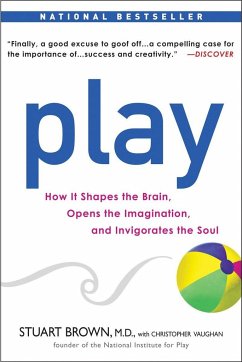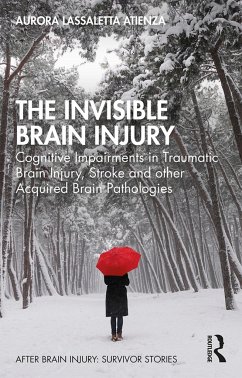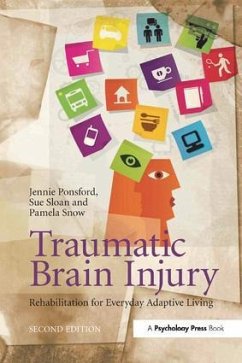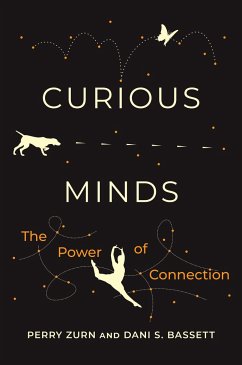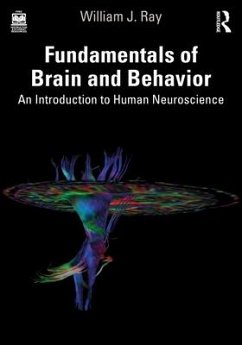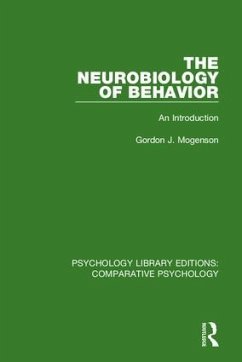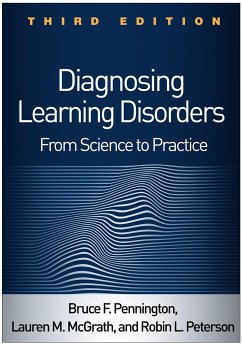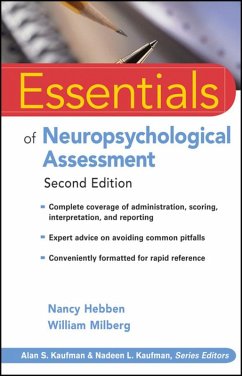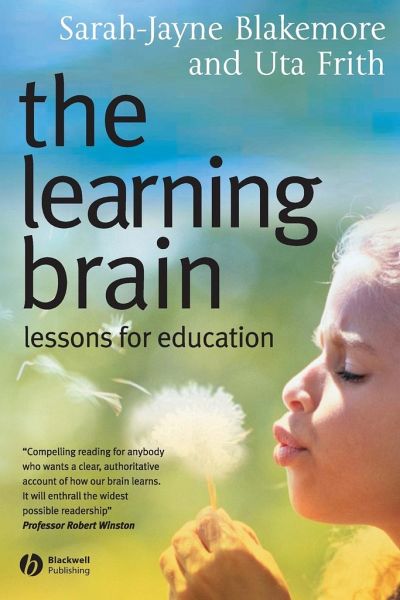
Sarah-Jayne Blakemore (UK University College London)Uta Frith (UK University College London)
Broschiertes Buch
The Learning Brain
Lessons for Education
Versandkostenfrei!
Versandfertig in über 4 Wochen

PAYBACK Punkte
23 °P sammeln!





FRONT COVER:- "Compelling reading for anybody who wants a clear, authoritative account of how our brain learns. It will enthrall the widest possible readership" Professor Robert Winston BACK COVER:- "This upbeat, fast paced review of brain research is a must read.
Sarah-Jayne Blakemore is a Research Fellow at the Institute of Cognitive Neuroscience at University College, London. She is engaged in neuroscience research, for which she obtained the 2001 British Psychological Society Award for Outstanding Doctoral Research. She has been seconded to the Houses of Parliament to write a report on Early Years Education for Select Committee for Education. Her involvement in the Public Engagement with Science is demonstrated in her frequent public lectures and scientific consultancy on a major BBC series on the Human Mind. Uta Frith is Professor of Cognitive Development and Deputy Director of the Institute of Cognitive Neuroscience at University College, London. She has researched developmental disorders for more than 30 years. She is a leading authority on autism and dyslexia and has gained prestigious prizes and honorary doctorates. She is the author of well known books on autism and Asperger syndrome. Her work has led to greater awareness of disorders of cognitive and social development with a basis in the brain.
Produktdetails
- Verlag: John Wiley and Sons Ltd
- Seitenzahl: 224
- Erscheinungstermin: 1. Mai 2005
- Englisch
- Abmessung: 229mm x 152mm x 12mm
- Gewicht: 338g
- ISBN-13: 9781405124010
- ISBN-10: 1405124016
- Artikelnr.: 21521939
Herstellerkennzeichnung
Libri GmbH
Europaallee 1
36244 Bad Hersfeld
gpsr@libri.de
"This beautifully written book by two experts is compelling readingfor anybody who wants a clear, authoritative account of how ourbrain learns. It will enthrall the widest possible readership -those people who have no previous knowledge of brain science, andthose who have a detailed grasp of how the brain works."
Robert Winston, Imperial College London
"This upbeat, fast paced review of brain research is a mustread. It has a large canvass and a big point - when it comesto learning, it's all about the brain."
Michael S. Gazzaniga, David T. McLaughlin DistinguishedUniversity Professor, Dartmouth College
"This is an exciting, readable and compelling account of how theworkings of the brain shape both formal and
Robert Winston, Imperial College London
"This upbeat, fast paced review of brain research is a mustread. It has a large canvass and a big point - when it comesto learning, it's all about the brain."
Michael S. Gazzaniga, David T. McLaughlin DistinguishedUniversity Professor, Dartmouth College
"This is an exciting, readable and compelling account of how theworkings of the brain shape both formal and
Mehr anzeigen
informallearning."
Kathy Sylva, Professor of Educational Psychology, University ofOxford
"Sarah Blakemore and Uta Frith have written a highly accessiblesurvey of the many links between brain science and education. Theydo a beautiful job of summarizing many recent and excitingdiscoveries in neuroscience, brain imaging, and psychology, fromsleep to dyslexia, autism or attention deficits. Teaching willalways be something of an art - but the teachers who readThe Learning Brain will know much more about the sciencebehind it. This book should be read by all educators, students andparents who want to understand how the brain changes duringlearning, and what can be done to ground educational practices on asound basis in psychology and neuroscience." Stanislas Dehaene,INSERM Cognitive Neuroimaging Research Unit,Paris
"It [The Learning Brain: Lessons forEducation] is rich with facts, yet easily accessible to thegeneral reader. While sending a positive and encouraging messageabout the relevance of neuroscience to the classroom, its tone isresponsible and not exaggerated. The book is packed with details ofcutting-edge research, presented in a lively manner with care toavoid excessive detail.
Nature Neuroscience, October 2005
"The material is well presented, and much of it isfascinating in its own right. Anyone interested in the workings ofthe brain can profit from reading this book."
PsycCRITIQUES, October 2005
"The Learning Brain should become compulsoryreading for everyone who is involved in educational practice andpolicy because it by no means raises unrealistic hopes, or -like some other popular books in this field - give more orless trivial advice about 'brain-appropriate' learning.It also helps in the understanding of what might have gone wrong inthe brains of learners who, for example, have persistent readingdifficulties despite schooling, or who fail to grasp advancedmathematical and scientific concepts."
Trends in Cognitive Science, December 2005
"This is a very readable account of the findings of brainresearch and will appeal to a wide variety of readers . . .Readers, whether they be members of the general public who have aninterest in how the brain works, people working within education ornew researchers will be amazed by the findings of brain researchand will want to find out more."
Education in the North
Kathy Sylva, Professor of Educational Psychology, University ofOxford
"Sarah Blakemore and Uta Frith have written a highly accessiblesurvey of the many links between brain science and education. Theydo a beautiful job of summarizing many recent and excitingdiscoveries in neuroscience, brain imaging, and psychology, fromsleep to dyslexia, autism or attention deficits. Teaching willalways be something of an art - but the teachers who readThe Learning Brain will know much more about the sciencebehind it. This book should be read by all educators, students andparents who want to understand how the brain changes duringlearning, and what can be done to ground educational practices on asound basis in psychology and neuroscience." Stanislas Dehaene,INSERM Cognitive Neuroimaging Research Unit,Paris
"It [The Learning Brain: Lessons forEducation] is rich with facts, yet easily accessible to thegeneral reader. While sending a positive and encouraging messageabout the relevance of neuroscience to the classroom, its tone isresponsible and not exaggerated. The book is packed with details ofcutting-edge research, presented in a lively manner with care toavoid excessive detail.
Nature Neuroscience, October 2005
"The material is well presented, and much of it isfascinating in its own right. Anyone interested in the workings ofthe brain can profit from reading this book."
PsycCRITIQUES, October 2005
"The Learning Brain should become compulsoryreading for everyone who is involved in educational practice andpolicy because it by no means raises unrealistic hopes, or -like some other popular books in this field - give more orless trivial advice about 'brain-appropriate' learning.It also helps in the understanding of what might have gone wrong inthe brains of learners who, for example, have persistent readingdifficulties despite schooling, or who fail to grasp advancedmathematical and scientific concepts."
Trends in Cognitive Science, December 2005
"This is a very readable account of the findings of brainresearch and will appeal to a wide variety of readers . . .Readers, whether they be members of the general public who have aninterest in how the brain works, people working within education ornew researchers will be amazed by the findings of brain researchand will want to find out more."
Education in the North
Schließen
Für dieses Produkt wurde noch keine Bewertung abgegeben. Wir würden uns sehr freuen, wenn du die erste Bewertung schreibst!
Eine Bewertung schreiben
Eine Bewertung schreiben
Andere Kunden interessierten sich für


